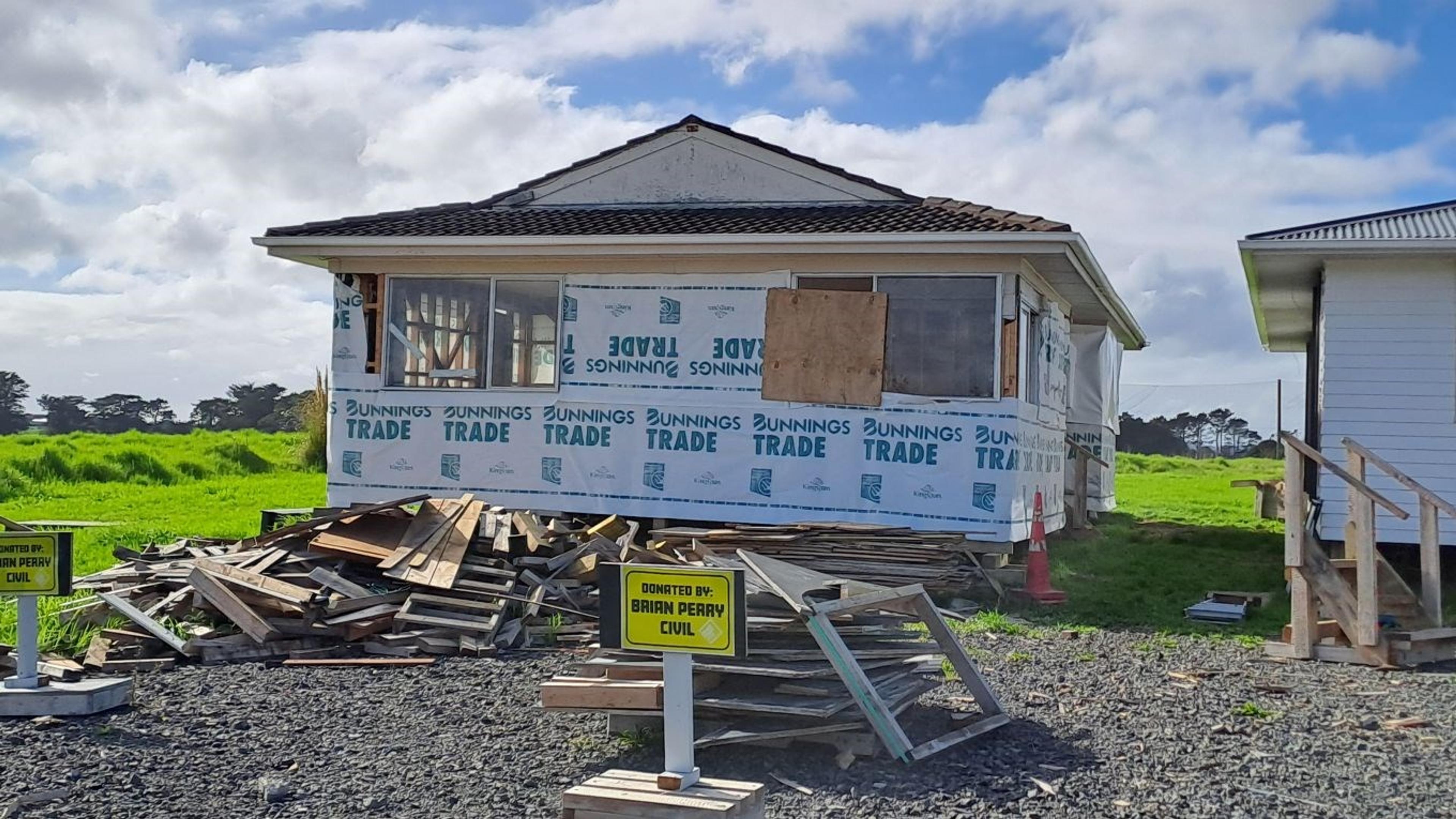

Fiji's Prime Minister Sitiveni Rabuka meets Chinese President Xi Jinping in Beijing on Wednesday.
Photo/Chinese Embassy, Suva
Ocean of Peace: China backs Fiji plan ahead of key Pacific summit
Chinese President Xi Jinping and Fijian Prime Minister Sitiveni Rabuka held bilateral talks in Beijing this week.

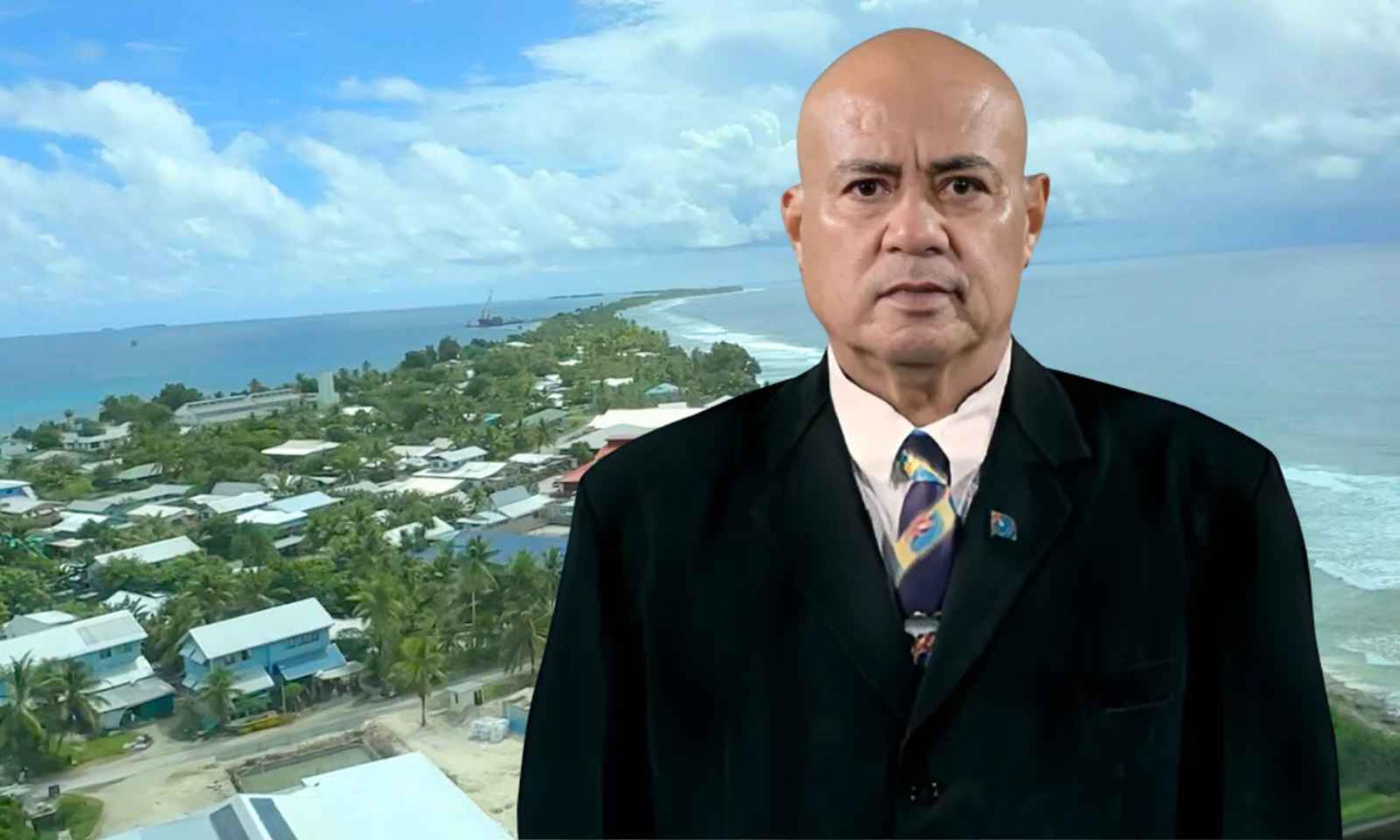
Tuvalu seeks official confirmation on mistaken inclusion in US travel ban
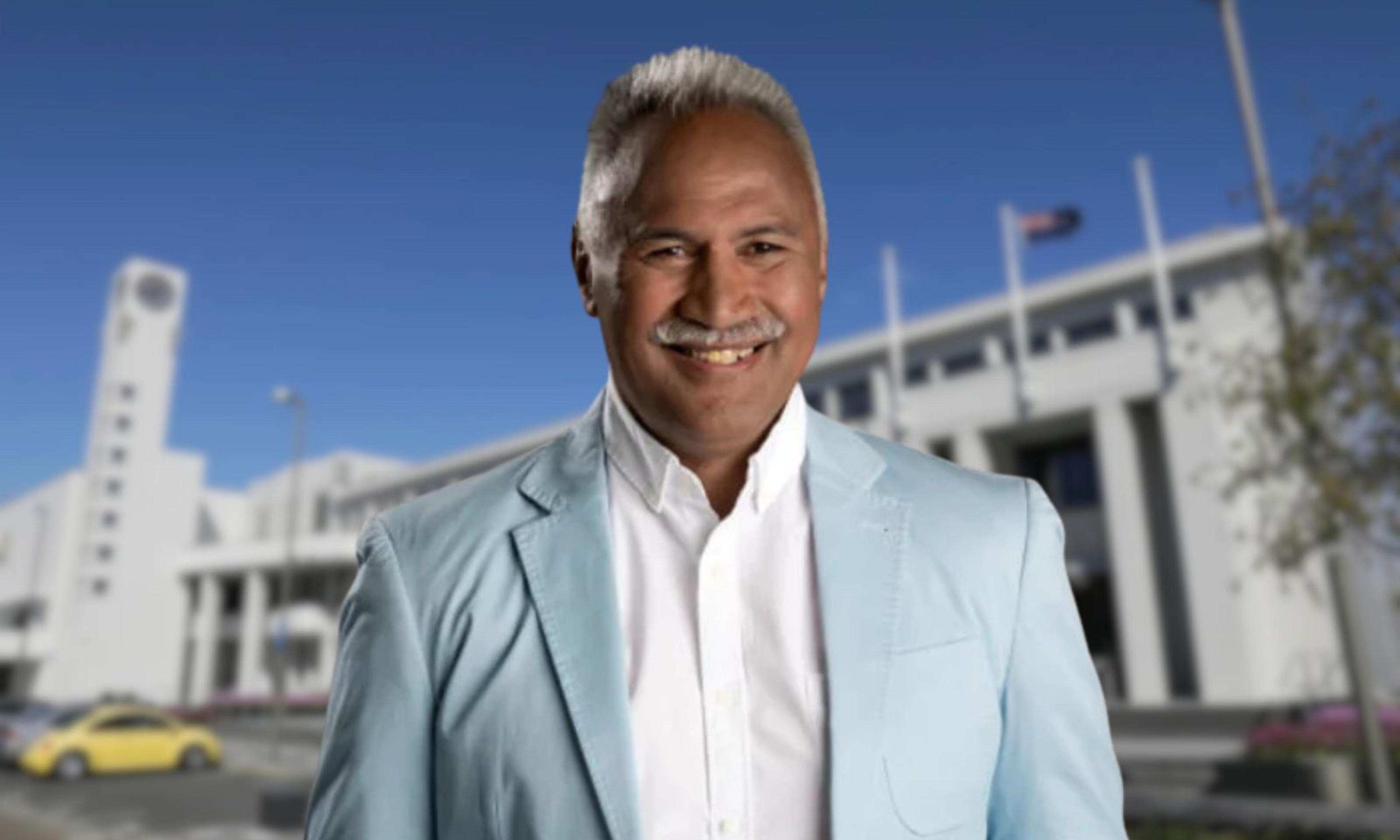
Fauono Ken Laban: First Pacific candidate for Lower Hutt city race

Northern Mystics reclaim top spot as finals race heats up

Māngere youth turn derelict houses into jobs and upskilling

Tuvalu seeks official confirmation on mistaken inclusion in US travel ban

Fauono Ken Laban: First Pacific candidate for Lower Hutt city race

Northern Mystics reclaim top spot as finals race heats up
China has put its support behind Fiji’s ‘Ocean of Peace’ plan, the government has announced.
Chinese President Xi Jinping welcomed Fijian Prime Minister Sitiveni Rabuka’s proposal during the two leaders' meeting in Beijing on Wednesday.
The endorsement comes ahead of the Pacific Islands Forum Leaders summit in Tonga next week.
Xi also assured Rabuka of China's commitment to strengthening trade ties with Fiji and upgrading the Pacific island nation's infrastructure including the ports, shipbuilding, roads, and sewage systems.
Watch international law expert Al Gillespie's interview below.
The Chinese improvements are expected to help secure better trade terms for Fiji’s agricultural and fisheries exports due to the Fijian government's significant debt burden.
In a statement released by the Chinese Foreign Office on Wednesday, Xi said China appreciated Rabuka’s vision for an Ocean of Peace, adding that Beijing would work with Fiji on international peace and security.
Regional security, Ocean of Peace plan
Rabuka, who resumed office in 2022, has been advocating for an “Ocean of Peace” foreign policy, which his government said the prime minister had already proposed to other Pacific leaders.
It said the policy aimed to engage with all the major powers while avoiding the militarisation of the Pacific Islands.
During the meeting, Rabuka expressed his satisfaction with Xi’s support, saying, “I am very much encouraged by your principles, your ideas on peaceful coexistence, on the principles of progress.
“They are in line with what I have in mind for the concept of the Ocean of Peace.”
Rabuka said he would mention the Chinese leader’s backing of the plan at the upcoming summit in Tonga where leaders from 18 forum member countries and territories will gather in Nuku’alofa to discuss regional issues, including a policing proposal backed by Australia.
Rabuka’s visit to Beijing has drawn huge attention amid strategic competition between China and the United States.
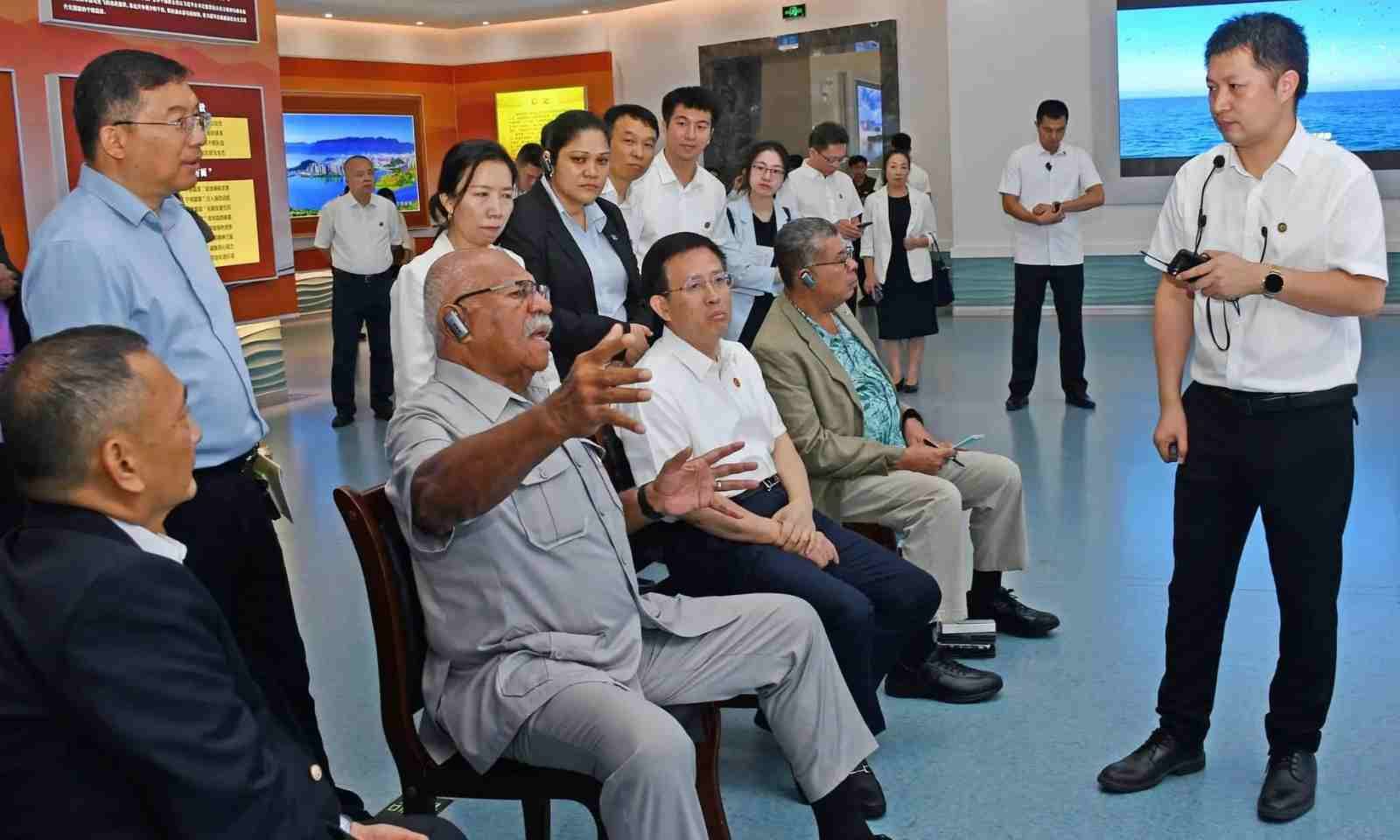
Fijian PM Sitiveni Rabuka visits the Ningde Poverty Alleviation and Development Exhibition Hall in Ningde City, Fujian Province, China. Photo/Chinese Embassy, Suva
Despite the growing tensions between Beijing and the US and its allies, Rabuka said he would not disrupt regional security, emphasising the need for peaceful coexistence and progress.
Two US Pacific territories, Guam and American Samoa, have applied to join PIF, and the leaders are expected to decide in Tonga.
Does China feature in this at all?
Mihai Sora, head of the Pacific Programme at the Lowy Institute, said it was a factor in the context of the geopolitical competition in the Pacific region.
"The Pacific Islands Forum has strengthened relationships and partnerships with the US and its allies knowing that China is not a member of PIF and there's a regional consensus that critical issues like regional security have to be in their interests.
"So having the inclusion of the American territories can be a good thing, but it's not that straightforward. It does bring in issues of decolonisation and the political status of these countries.
"I'm confident that it will be managed extensively but it'll have to be calculated carefully."
Fiji-China cooperation, strategic importance
China has also agreed to invest in Fiji’s tourism, agriculture, and fisheries sectors.
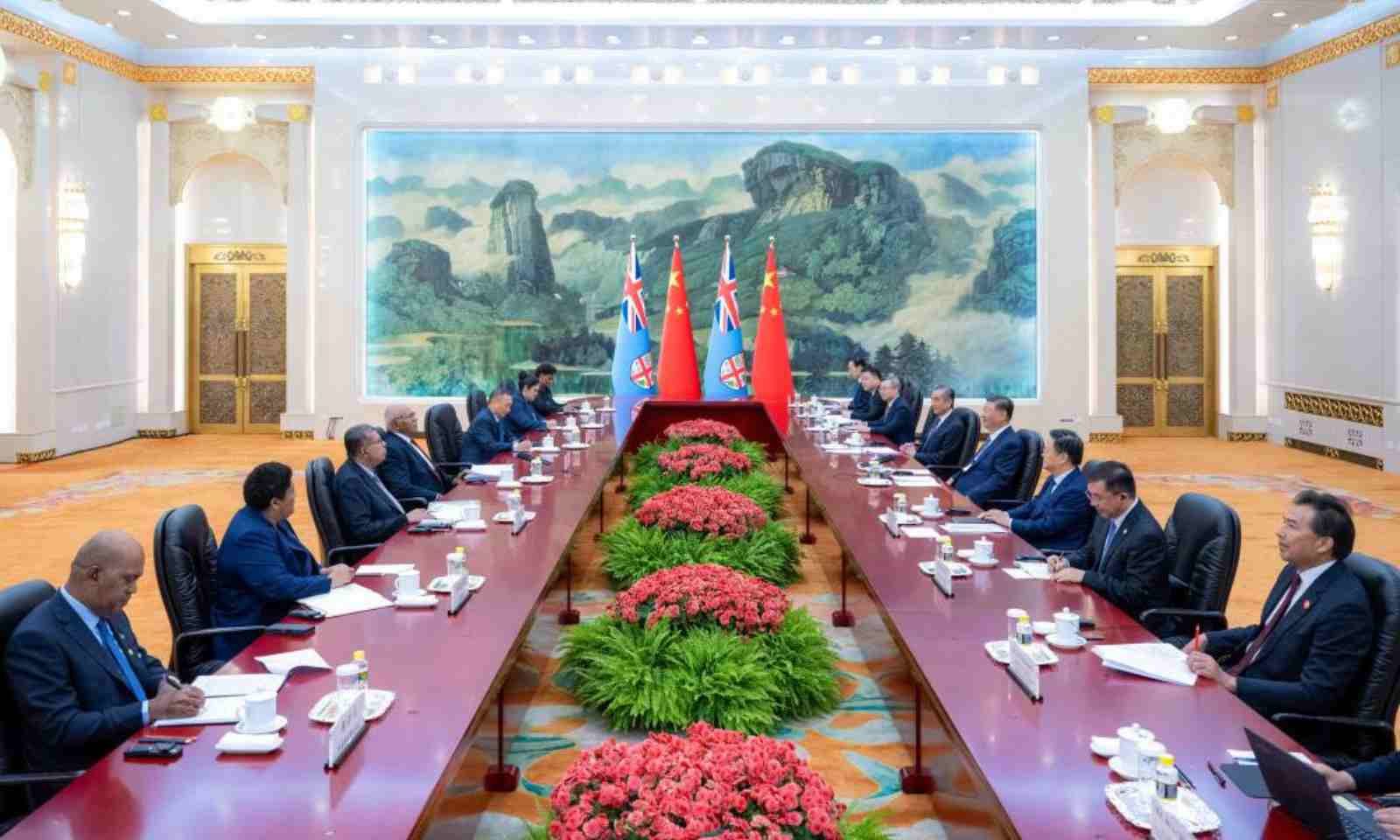
Fiji and China government officials hold bilateral talks in Beijing. Photo/Chinese Embassy, Suva
The Chinese government will also support a road upgrading project on Fiji’s second-largest island, Vanua Levu.
Despite the Pacific Island states typically offering a low return on investment, analysts highlighted Fiji’s strategic importance to China.
Positioned at the southern end of the “second island chain,” which stretches to Japan, Fiji is crucial to Beijing’s naval ambitions in the region.
China’s growing influence in the Indo-Pacific also aligns with its efforts to diplomatically isolate Taiwan, the experts say.
Beijing views Tapei as part of its territory and is seeking to sever the island’s diplomatic ties with the Marshall Islands, Palau, and Tuvalu.
Fiji’s financial relationship with China is significant, with the island nation owing just over $218 million to China, the world’s largest bilateral lender, according to the World Bank.
It said following his election in 2022, Rabuka has sought additional aid from Australia.
The move also represented a shift from the approach taken by Rabuka's predecessor, Frank Bainimarama, who had established a policing agreement with China a decade ago.
In June, Rabuka announced a “police force reset,” signifying a key move towards closer cooperation with Australia in policing matters.
Rabuka heads to Tonga on Sunday. The Pacific Islands Forum leaders summit is from 26-30 August.
Watch Taiwan’s Representative in New Zealand Joanne Ou's interview.